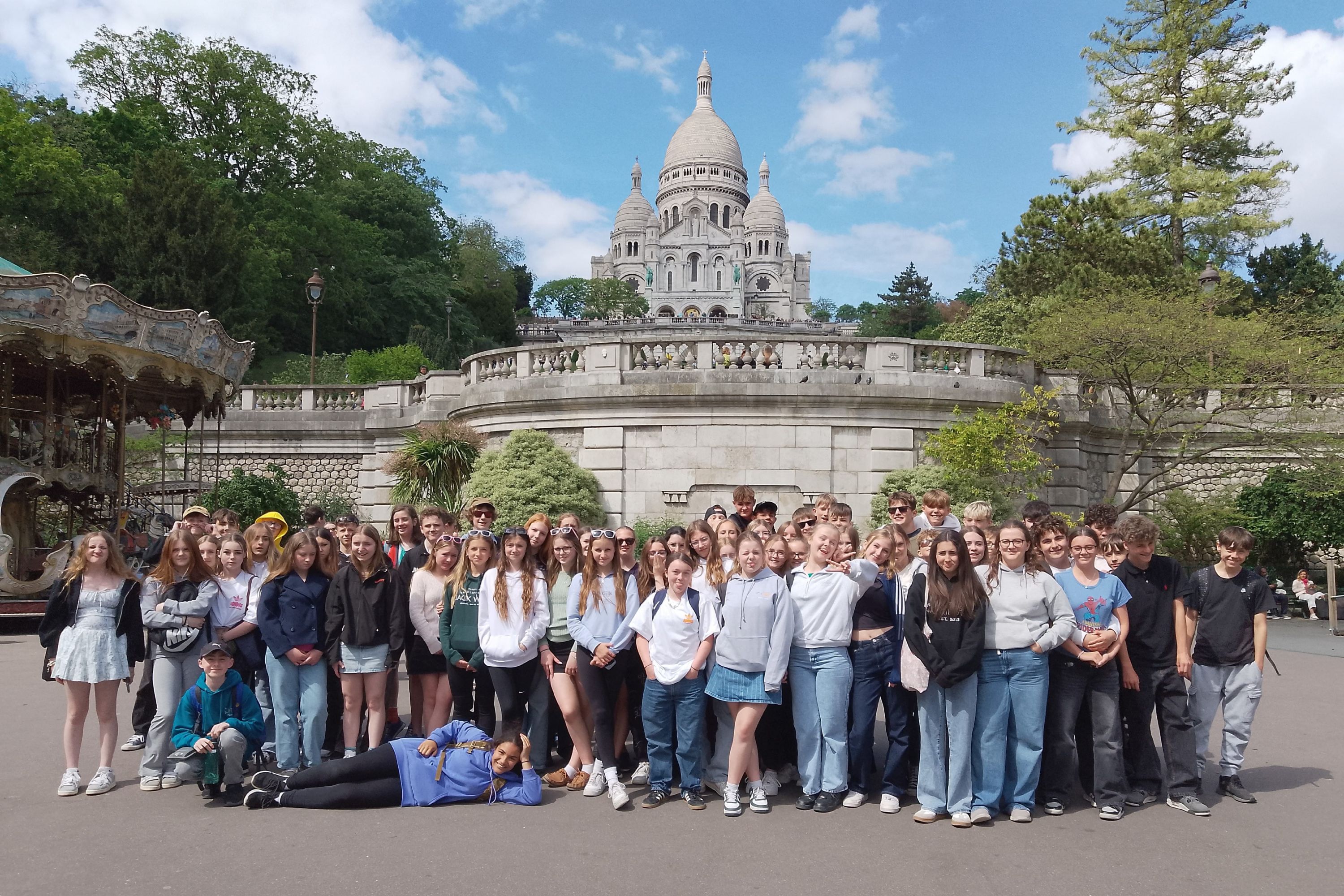Modern Foreign Languages
Our MFL curriculum intends to:
- provide students with the tools for lifelong language learning through the teaching of phonics, vocabulary and grammar (PVG)
- develop appreciation of the cultures of the target language countries
We implement this through:
- A knowledge-based curriculum which is centred around the core principles of phonics, vocabulary and grammar
- The explicit teaching of phonics, vocabulary and grammar in every lesson
- Lessons which prioritise meaningful practice of PVG in all modes and modalities
- Systematic revisiting of key learning throughout the curriculum
- Teaching students to communicate within three time frames (past, present, future)
- Building confidence in listening, though extracts which are played at moderate speed
For those who wish to study a language beyond our school, the curriculum ensures that they have the linguistic and study skills and confidence to do so. For others they leave us as better communicators who are tolerant, understanding, and open-minded.
- Our students study Spanish from Year 7 to Year 9, with two hours per week.
- We currently teach both French and Spanish at KS4, with five hours per fortnight.
What makes us special?
Our teachers are passionate linguists who bring their expertise and enthusiasm into the classroom, creating an inspiring and inclusive atmosphere. Through a blend of teaching approaches, we ensure that learners are engaged, challenged, and supported in their journey toward linguistic fluency and cultural understanding.
We offer a residential visit to Paris in Year 9 to develop interest and appreciation of other countries and other cultures.
Assessment
Assessment in the Spanish curriculum is carefully structured to support student progress. With three 12-week cycles each academic year, a mid-cycle assessment takes place in Week 5, followed by an end-of-cycle assessment in Week 11. These assessments focus on the key areas of phonics, vocabulary, and grammar, ensuring a strong foundation in the language.
At Key Stage 4, students follow the new AQA GCSE Spanish course, with exams as follows from June 2026:
Paper 1: Listening
- Exam includes 5 minutes’ reading time before the listening stimulus and 2 minutes’ checking time at the end.
- Section A- questions and answers in English
- Section B- a short dictation
Paper 2: Speaking
- Task 1- Role play
- Task 2- Reading aloud task
- Task 3- Discussion of photocard
Paper 3: Reading
- Section A- questions and answers in English
- Section B- translation from into English
Paper 4: Writing
Foundation
- Question 1- photo- 5 sentences
- Question 2- 5 bullet points- 50 words
- Question 3- grammar gap fill
- Question 4- translation from English
- Question 5- 3 bullet points – 90 words
Higher
- Question 1- Translation from English
- Question 2- 3 bullet points – 90 words
- Question 3- 2 bullet points – 150 words
Progression & careers
There are many jobs for which a language qualification would be an advantage (and even essential). These include work as air cabin crew, a bilingual secretary, or an au pair overseas. A language can also prove to be an advantage for, amongst others, careers in: Journalism, Marketing, Sales, Law Accountancy, Interpreting, Travel and tourism, Foreign Exchange and Banking or Nursing.
Curriculum Map

